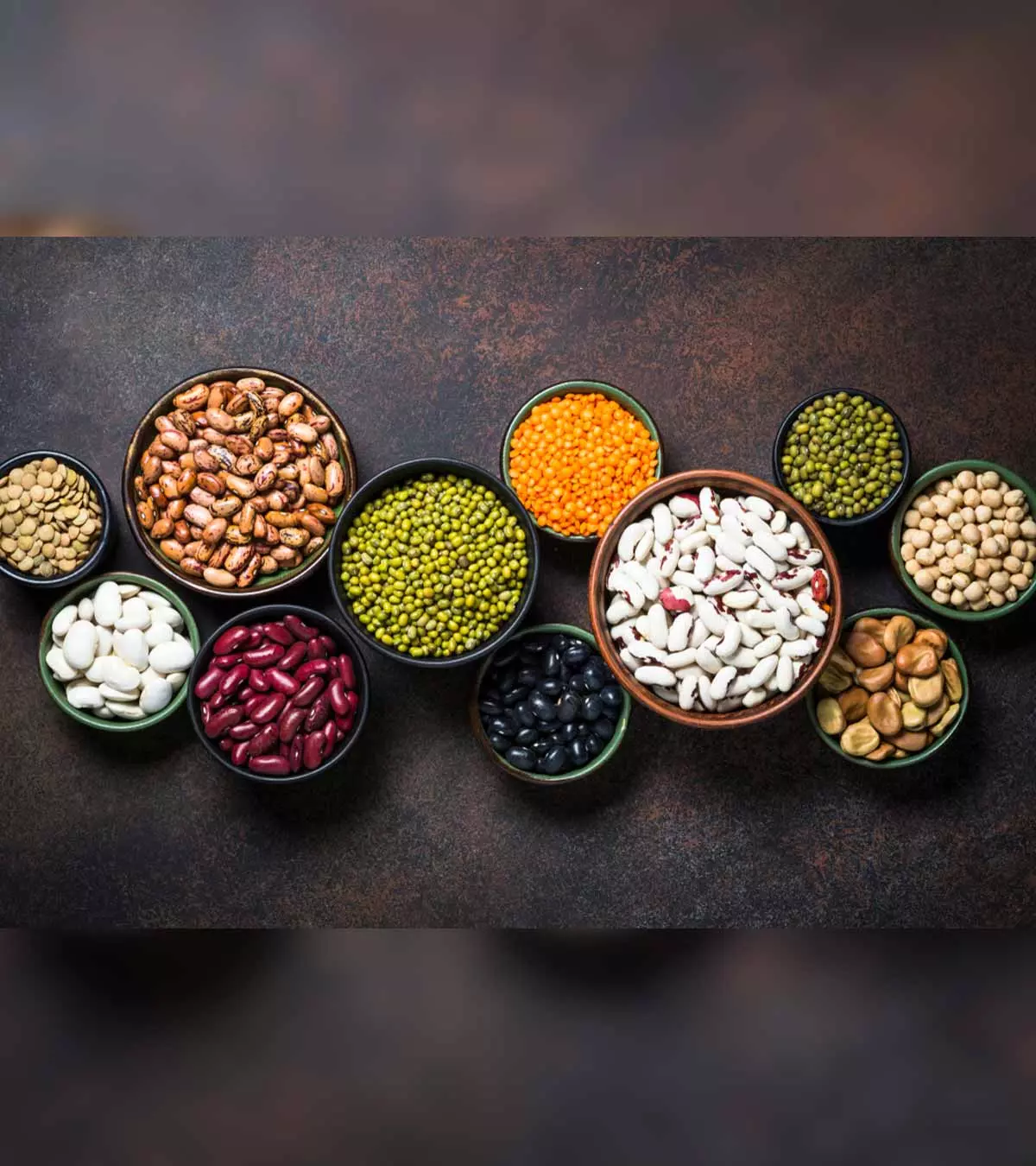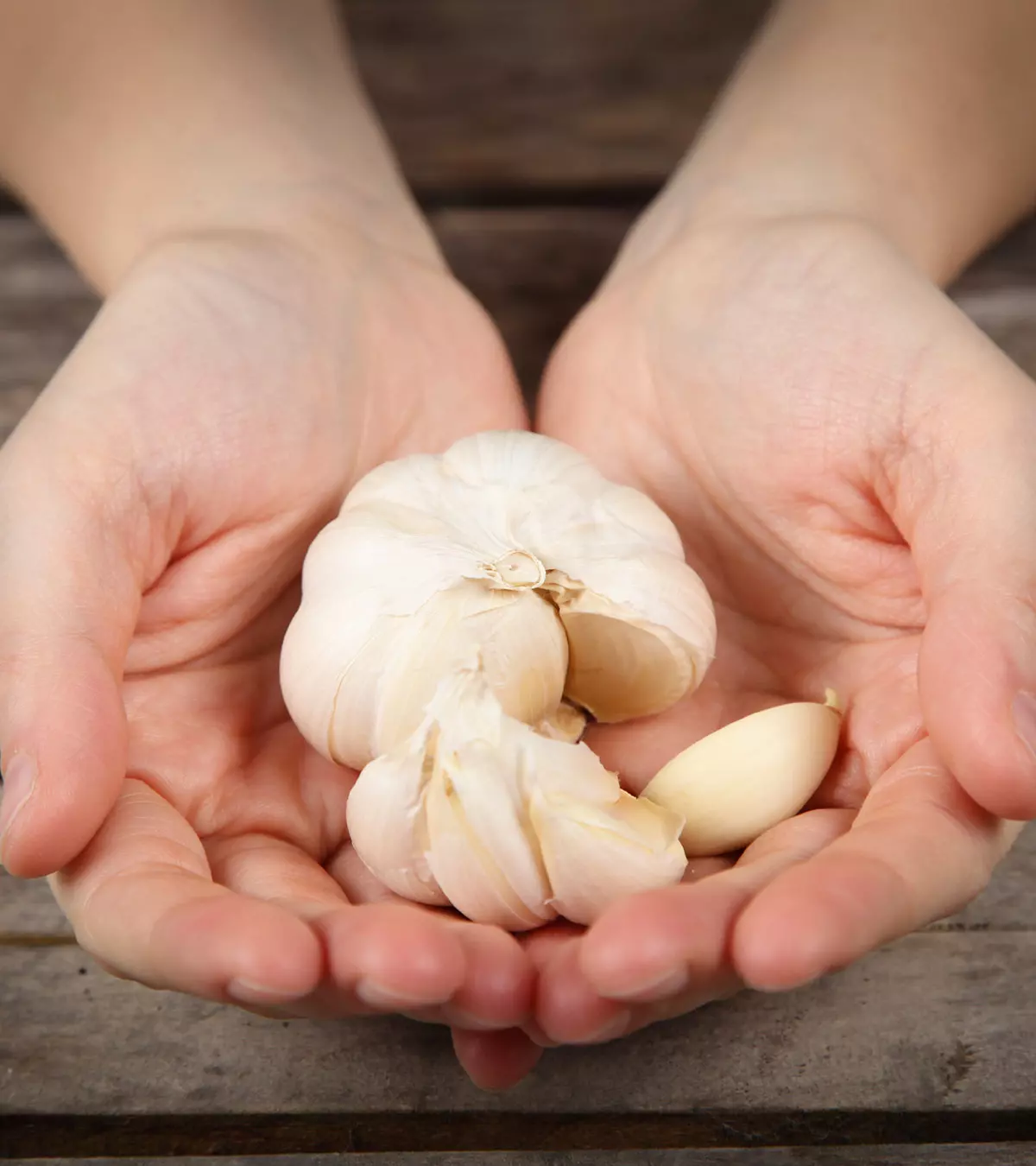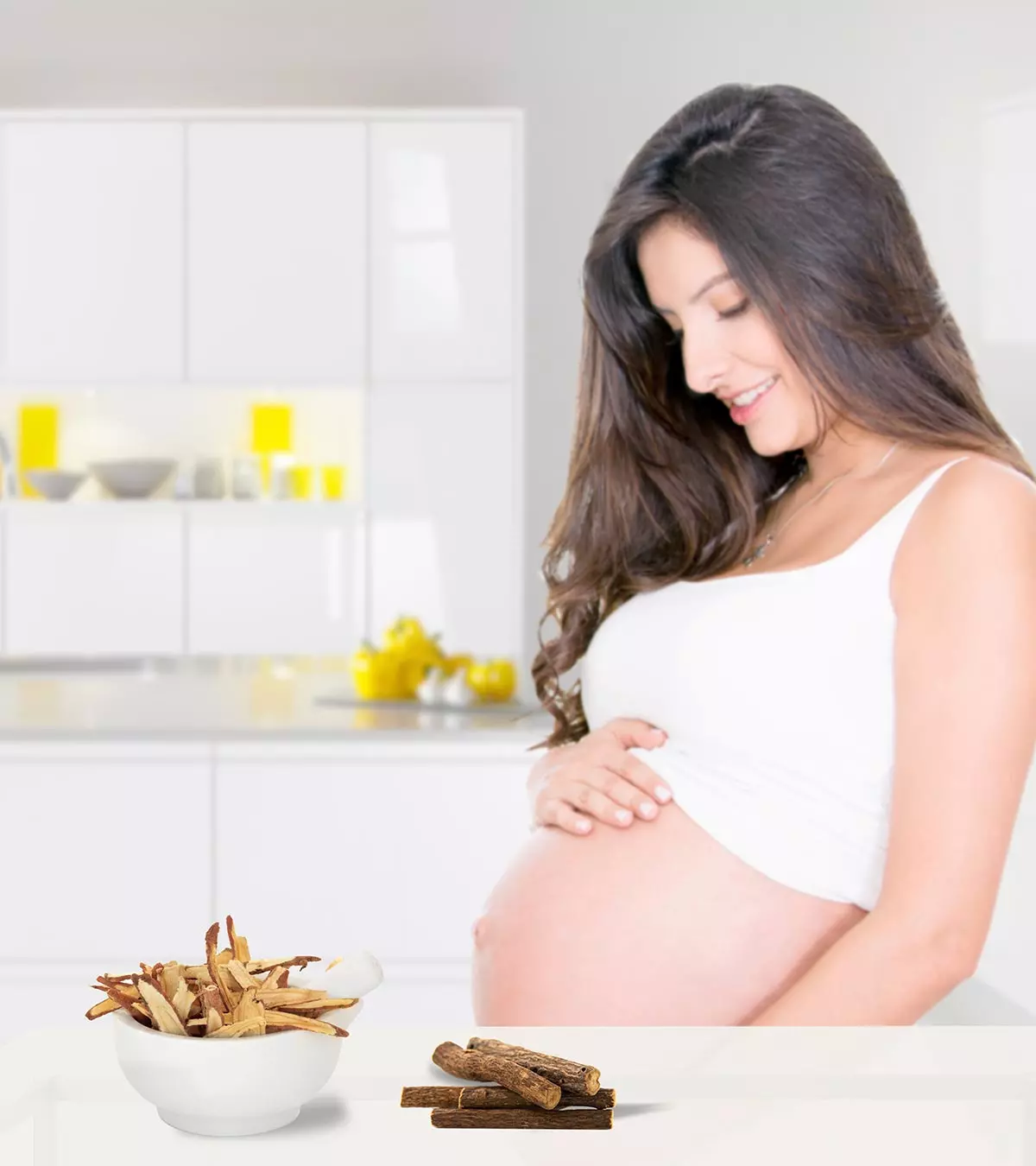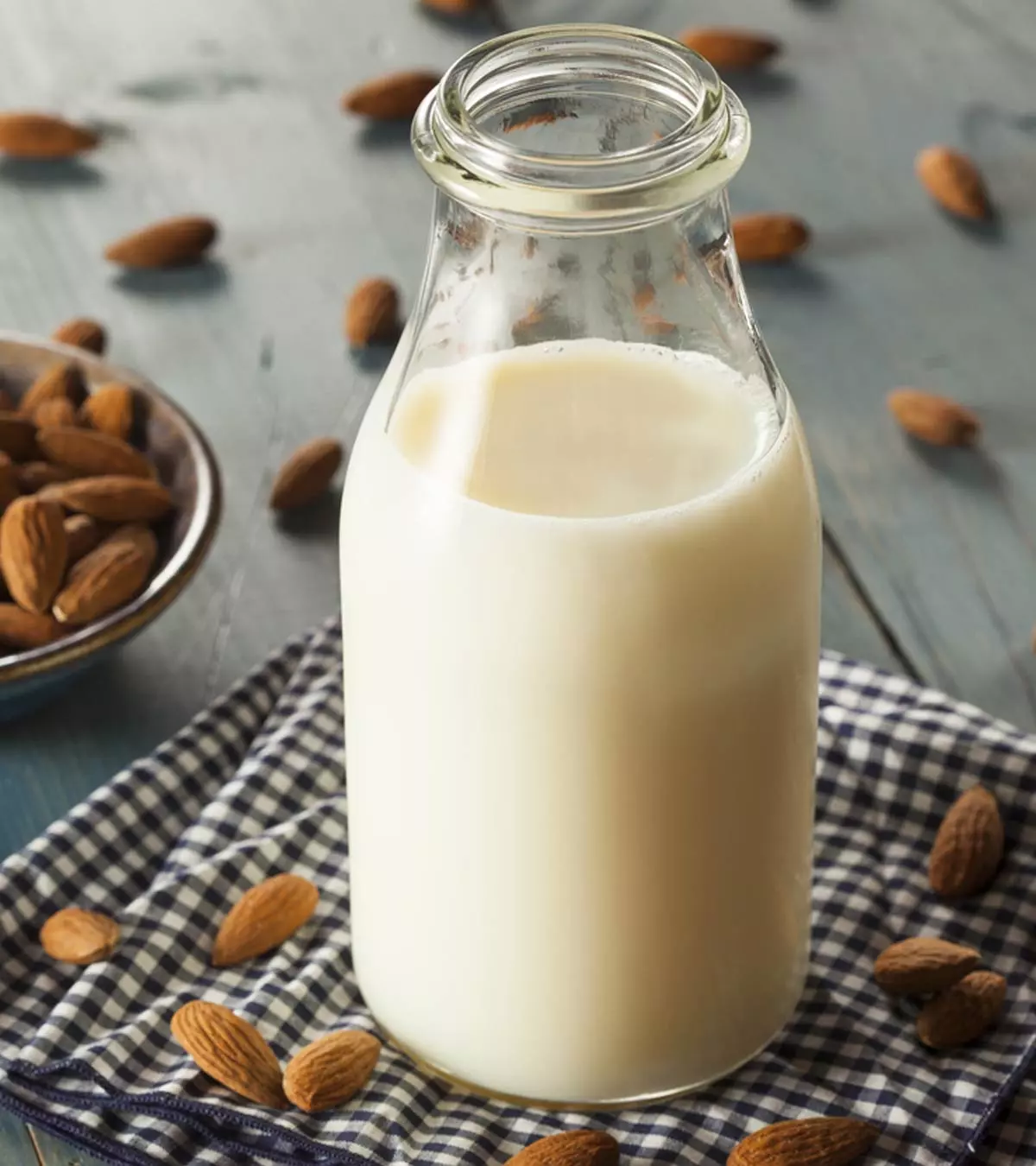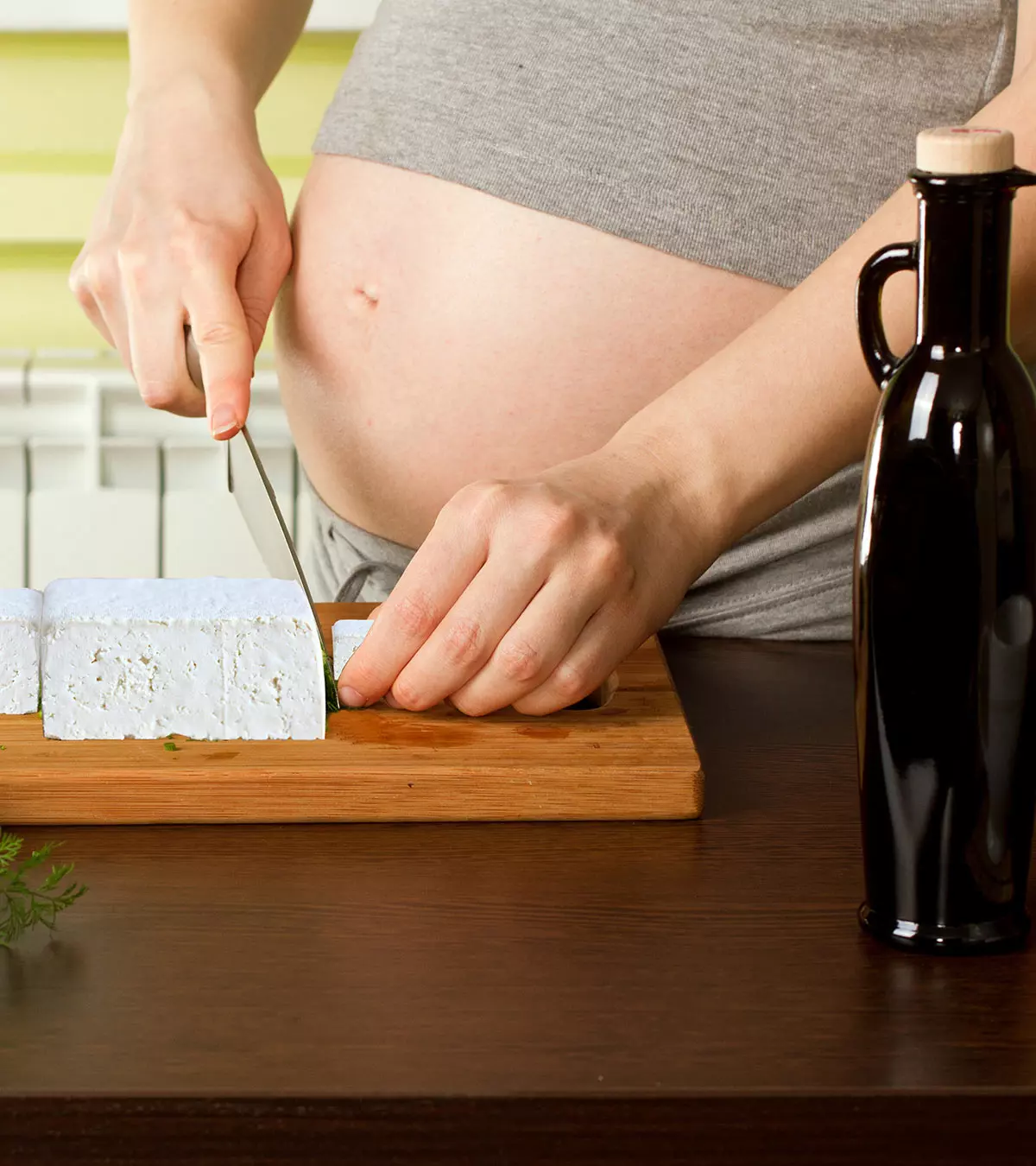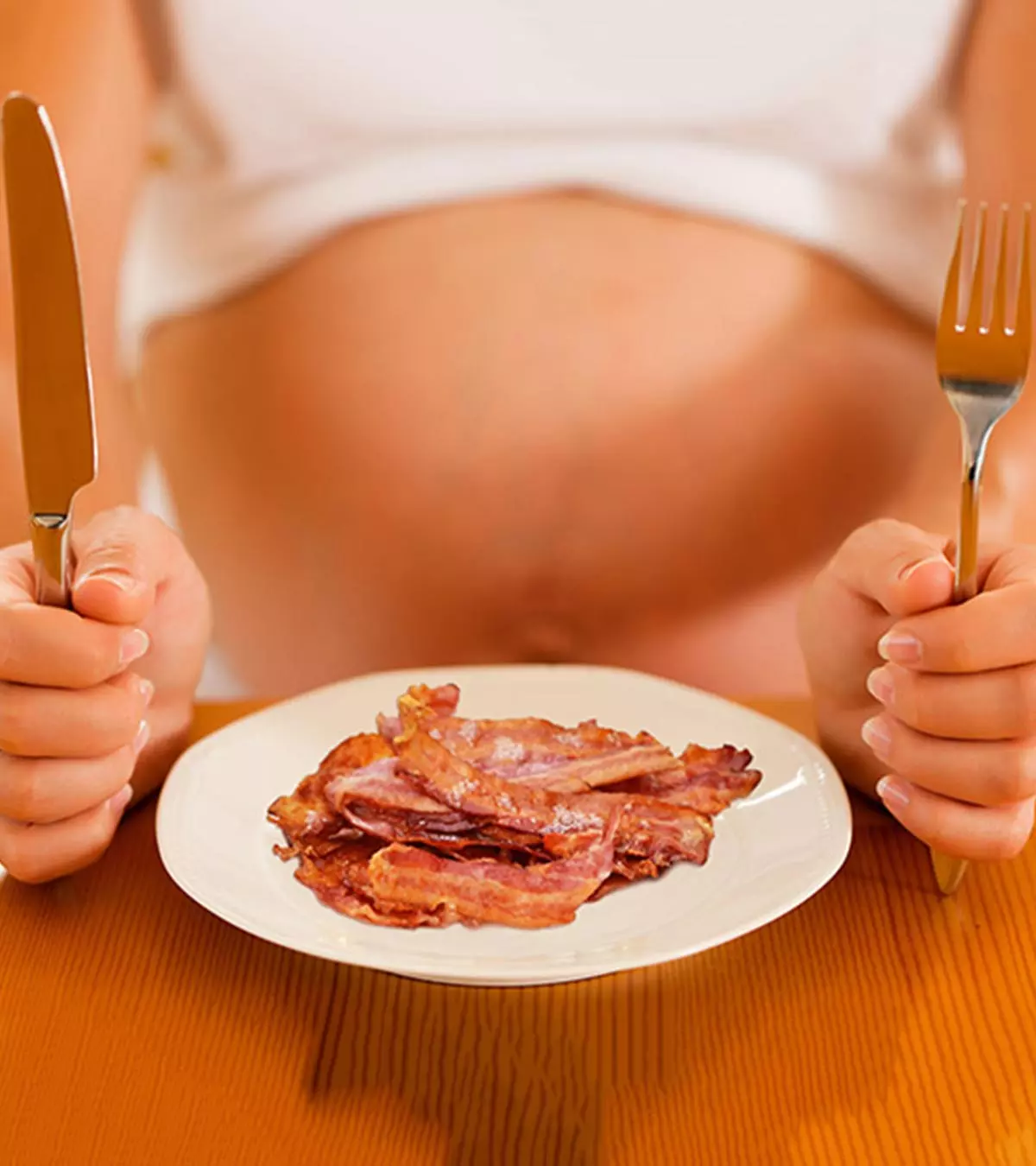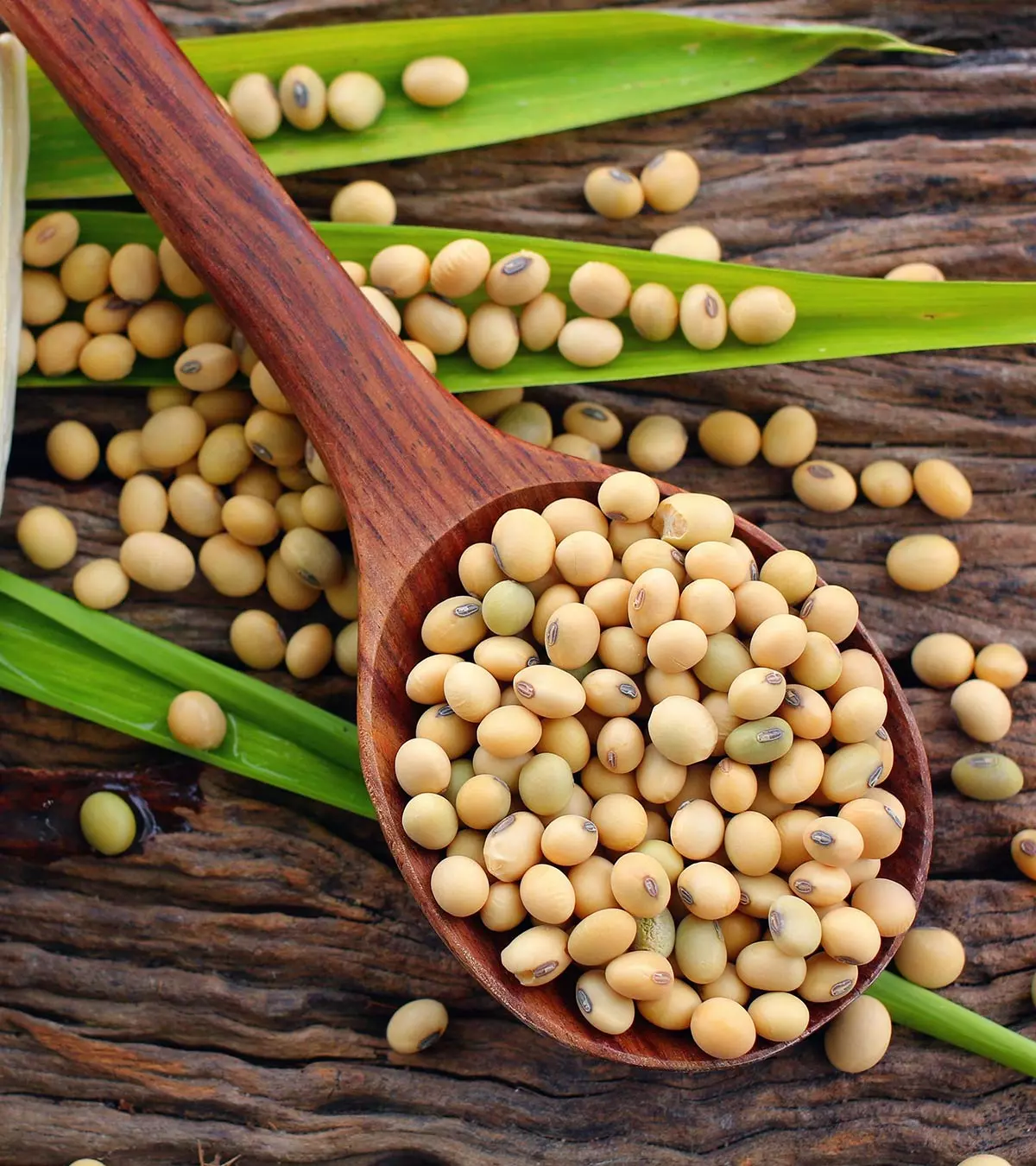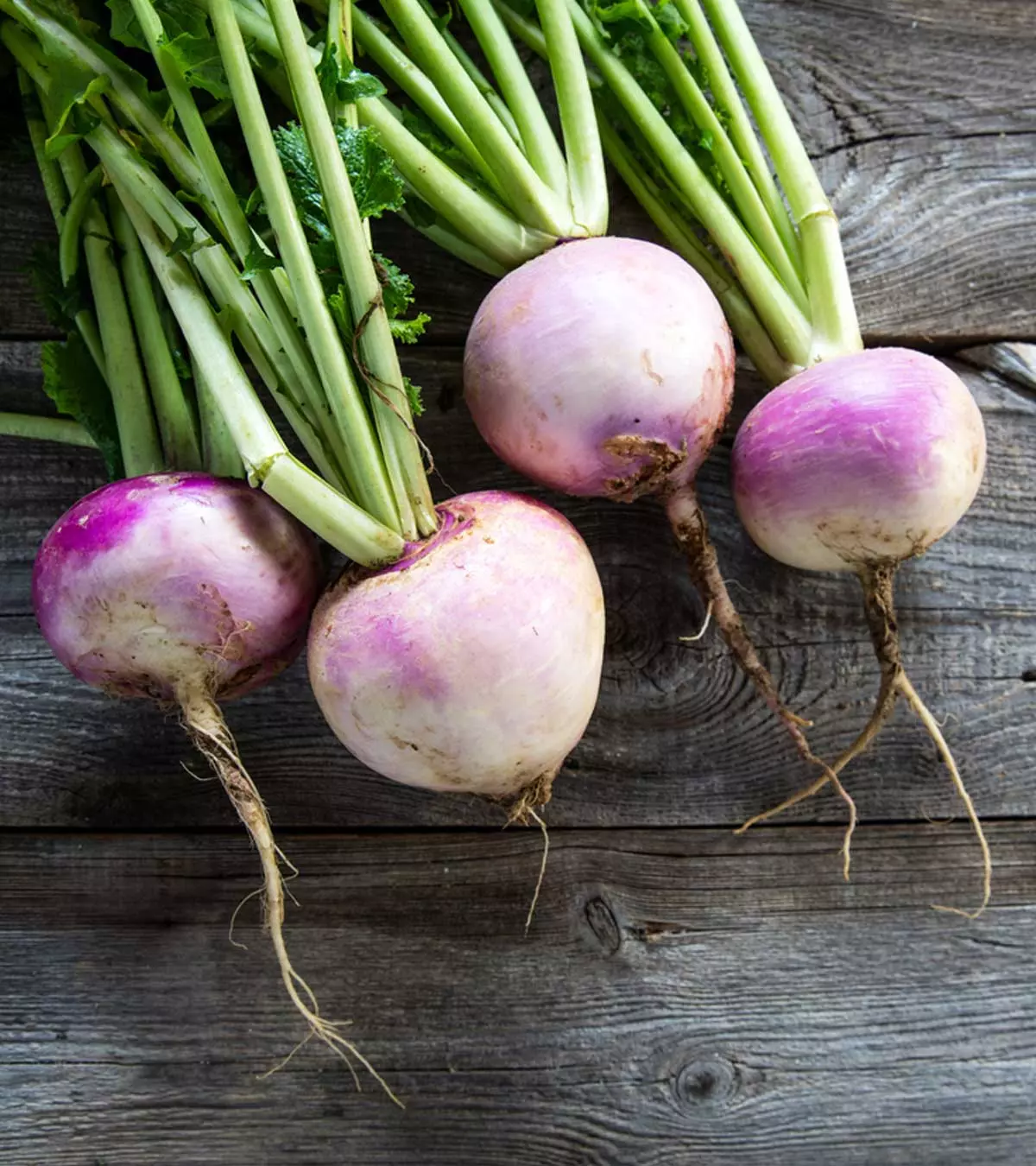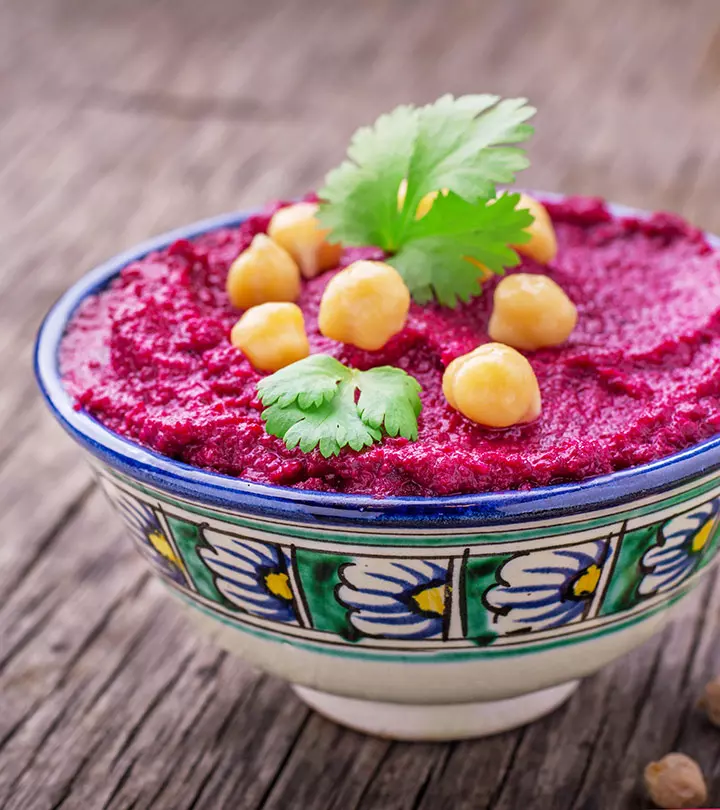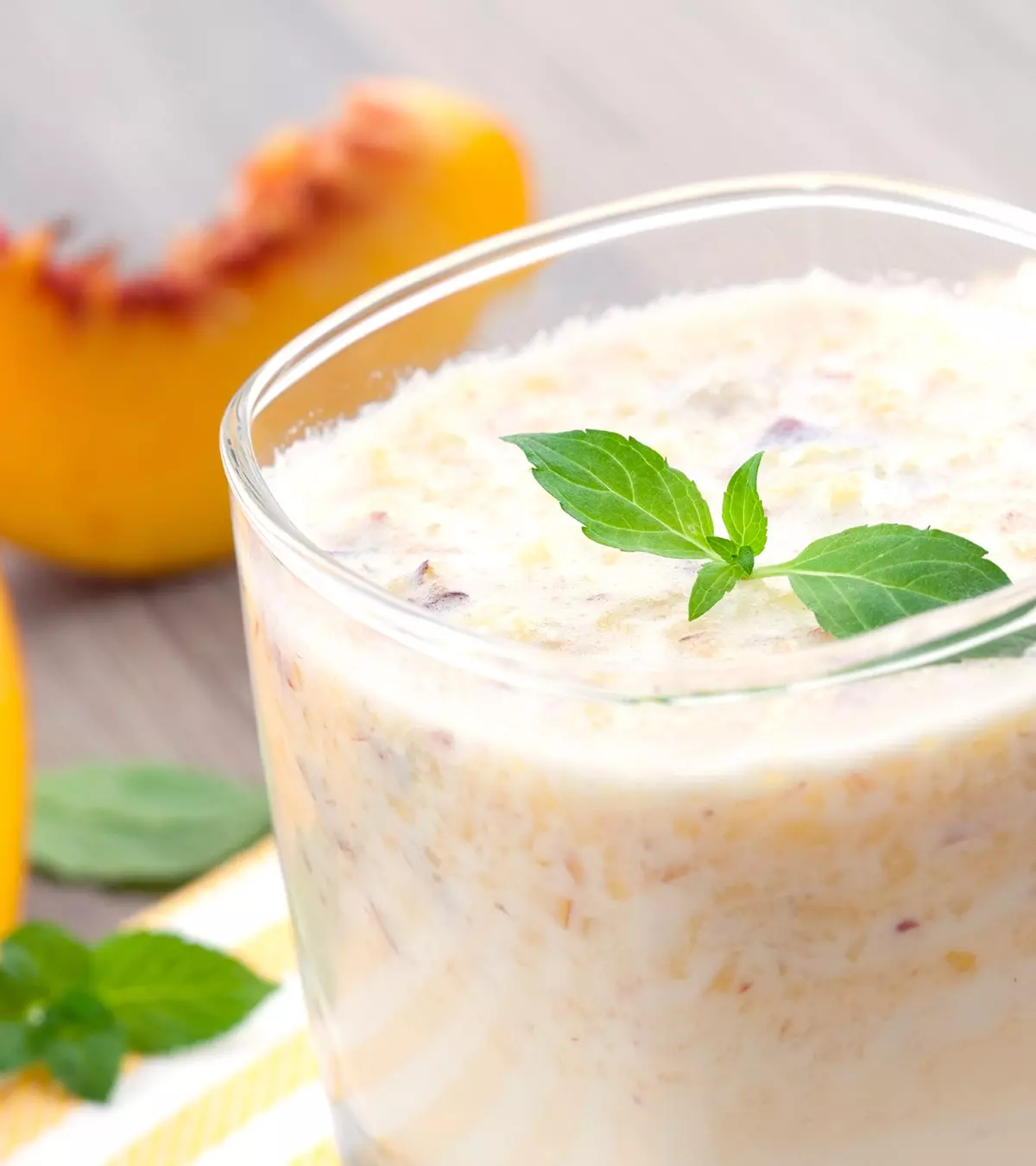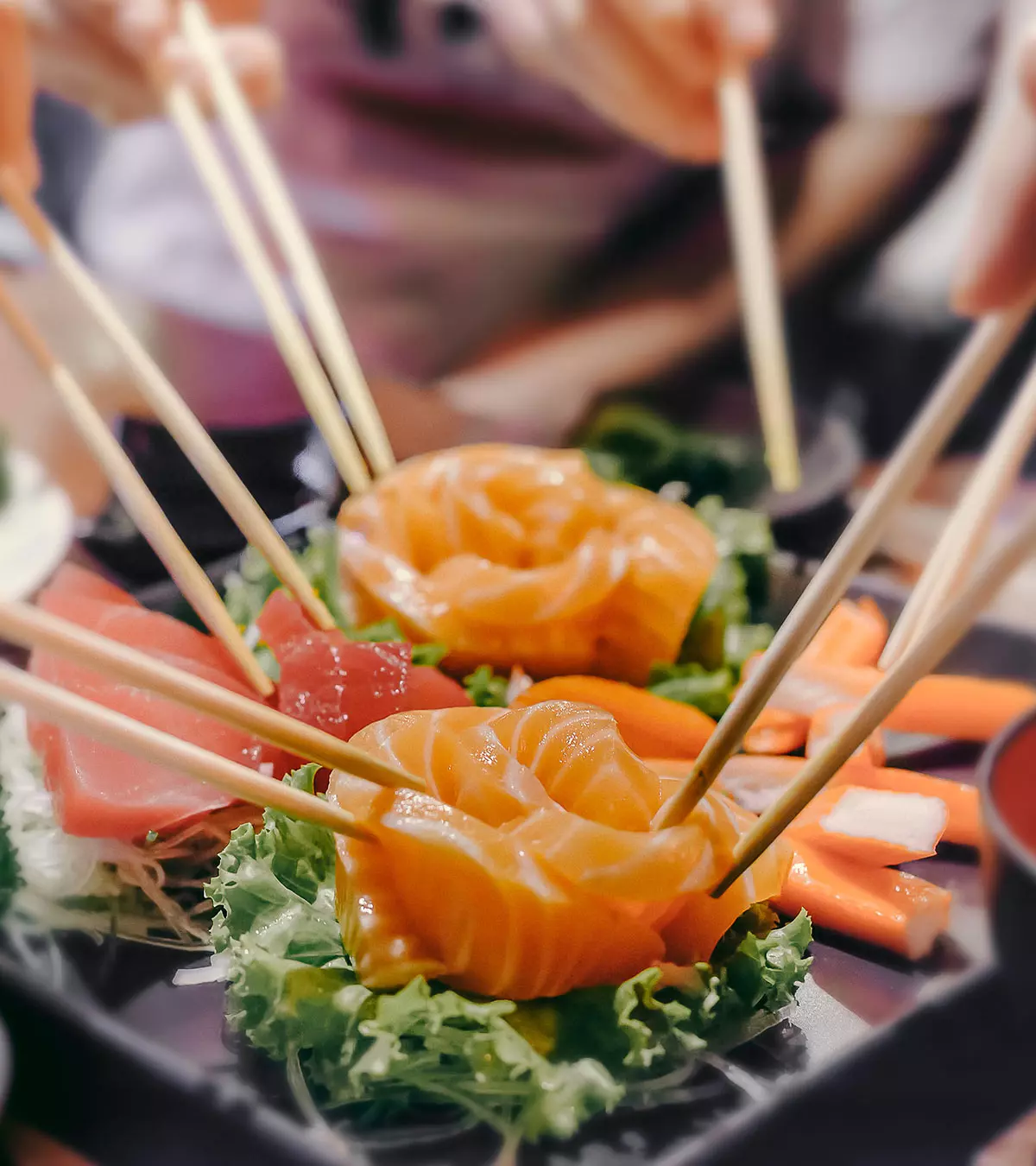
Image: Shutterstock
If you are craving tuna fish these days, we have gathered some information about the safety of tuna during pregnancy. Canned tuna or the varieties containing high mercury content can risk the baby’s growth. However, fresh tuna with low levels of mercury is often considered safe during pregnancy if consumed in moderate amounts. Moreover, eating small amounts of tuna as part of healthy eating regimen during pregnancy offer health benefits such as providing proteins and adding more vitamins to the body. However, if you consider eating tuna salad while pregnant, it is better to consult your doctor. So, read on for more information on maintaining safety standards while eating tuna.
Key Pointers
- Tuna is safe for pregnant women in moderation.
- Consumption should be limited to no more than four medium-sized cans (5 oz) of canned tuna or two fresh steaks (6 oz) per week.
- Tuna contains vitamin D, proteins, minerals, and omega-3 fatty acids that promote a baby’s growth.
- Canned tuna may contain BPA, which can harm brain development, and high quantities of salt, which can promote high blood pressure.
- Overeating tuna can cause mercury buildup in the body, leading to harm to the developing brain, neurological system, and heart of the baby.
Can Pregnant Women Eat Tuna Fish?
Yes, it is safe to eat tuna in limited amounts during your pregnancy. You can prefer eating white tuna (albacore) and light tuna. Tuna that is low in mercury levels is also allowed during pregnancy. Consuming excess tuna can be toxic as it is a major source of methylmercury that is toxic and harmful (1).
How Much Tuna Can You Eat When Pregnant?
Most dietitians and doctors suggest not to eat over four medium-sized cans of tuna (amounts to 5 ounces (oz)) a week. If it is fresh tuna steaks, you should not eat more than two, i.e., 6oz steaks a week. If you consume other kinds of seafood, you may have to adjust accordingly (2).
According to the US Food and Drug Administration (FDA), pregnant women can eat only eight to 12oz of seafood per week. In case you consume other seafood, avoid eating tuna the same week (3).
Can You Eat All Types Of Tuna?

Image: Shutterstock
Tuna lovers should understand that not all kinds of tuna are safe. Below are some standard tuna types and their consumption rules.
Albacore tuna: It is a premium variety and the only species of tuna referred to as white. It is available in cans and pouches. You can eat no more than two medium-sized cans or 300gm (6oz) of albacore (white) tuna per week.
Yellowfin tuna: Also known as light tuna, it is also available in cans and pouches. This variety has a slightly pronounced flavor than the white albacore tuna. You can eat no more than one serving per week.
Ahi tuna: It is also known as Bigeye, and is available as a steak or sashimi. It is not canned and contains higher levels of mercury. You can only eat up to 6oz a week.
Bluefin tuna: This tuna, like ahi, also contains higher levels of mercury and is available as sashimi. You can thus eat up to 6oz a week.
 Did you know?
Did you know?What Are The Benefits Of Tuna During Pregnancy?
Consuming limited amounts of tuna while pregnant will not harm you or your growing baby, as this oily fish has significant nutritional benefits. According to the food safety guidelines by the US FDA, tuna helps you during pregnancy as it:
- Supplies your body with high proteins
- Offers minerals, vitamin D, and omega-3 fatty acids, thereby boosting the baby’s development
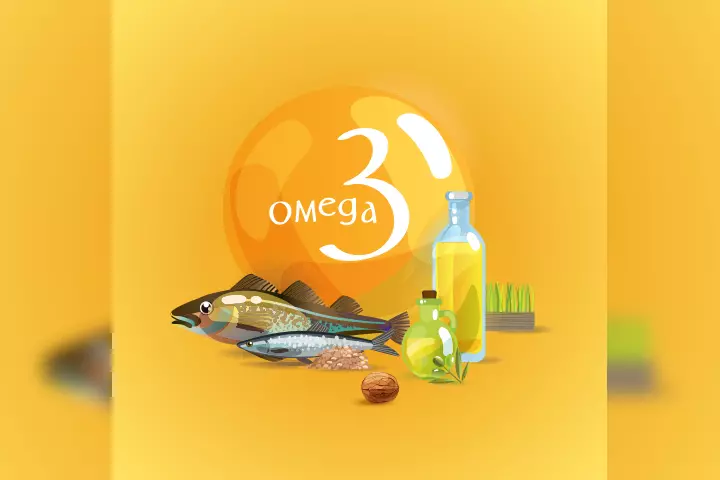
Image: Shutterstock
- The omega–3s aid in the development of the baby’s brain, eyes, and nerves, therefore helping in optimal fetal development (4)
Though it is not a perfect food to be taken during pregnancy, the benefits of eating limited amounts of tuna outweigh the risks of eating excess fish.
How Safe Is Canned Tuna While Pregnant?
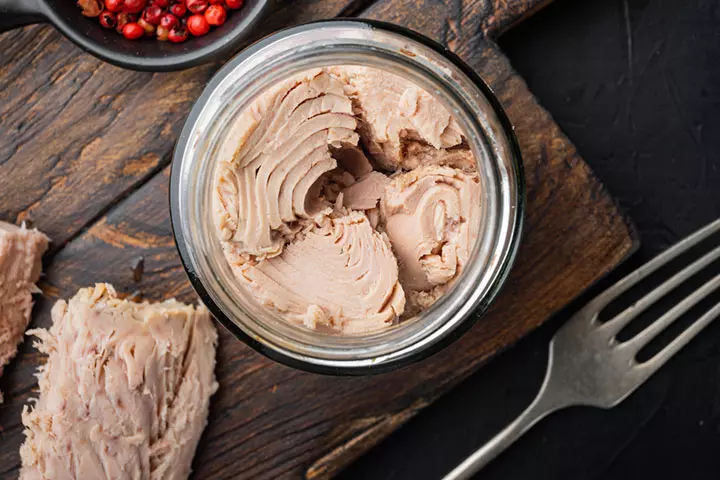
Image: Shutterstock
Canned tuna may pose certain health risks when consumed on a regular basis.
- Bisphenol A (BPA) is a substance present in the lining of metal cans. When you consume canned tuna, there are chances of BPA entering your system, affecting the fetus’ brain development (5).
- Canned tuna may also contain salt, which could increase the sodium levels in your body, increasing the chances of preeclampsia in pregnancy.
However, canned tuna has low levels of mercury as they contain only small and young fish.
Dangers Of Tuna During Pregnancy

Image: IStock
As mentioned, tuna is harmful if consumed in excess amounts, irrespective of it being canned or fresh.
- Too much tuna can build up mercury levels in your system, thereby damaging the developing brain and nervous system of the fetus.
- Mercury intake could also lead to heart damage.
- Mild exposure to mercury can cause developmental delays, impaired immune functioning, and physical deformities.
- Tuna also contains environmental pollutants, including dioxins and polychlorinated biphenyls (PCBs), which would build up in your body interfering with the baby’s development.
 Point to consider
Point to considerCan Eating Tuna Cause Congenital Anomalies In Your Baby?
Insufficient research is available to link tuna consumption to congenital anomalies. However, substances present in tuna, such as mercury and Bisphenol-A (BPA), can harm your baby.
BPA is a harmful substance often used in the lining of food storage cans. Exposure during pregnancy can impact the baby’s behavior and reproductive system. It might also increase the baby’s risk of mammary cancer later in life (5).
Excessive fish consumption containing mercury might result in the mercury passing through the placenta, affecting the baby’s brain development, vision, and hearing (9. Therefore, moderate consumption and proper cooking are advisable.
Can You Eat Raw Tuna While Pregnant?
Avoid raw tuna when you are pregnant, as you may be susceptible to food-borne illness. Cooking the fish destroys harmful pathogens and parasites.
Consumption of fish such as swordfish, king mackerel, tilefish, and shark are a complete no-no during pregnancy since they have higher levels of mercury. But tuna is believed to contain lower mercury levels. You can enjoy tuna in moderate quantities.
If you are a vegetarian, you can consider consuming prenatal vitamins and mineral supplements in order to meet the daily requirement and achieve optimum nutrition. However, consult with your doctor regarding its suitability and evaluate the risks such that no negative impact is seen on maternal health.
Frequently Asked Questions
1. What are the different ways to prepare tuna that are safe for pregnant women to consume?
It is important to cook seafood such as tuna to an internal temperature of 145°F to eliminate any pathogens present. Additionally, pregnant women should not eat raw or cured seafood (cold cuts) (10).
2. Can pregnant women eat tuna sushi?
Pregnant women should not consume sushi with raw tuna. However, they may have ones with cooked fish in moderate amounts.
3. Is there a difference in the amount of mercury in canned and fresh tuna?
A study reports the mean mercury concentrations in fresh tuna to be 0.517 mg/kg and 0.207 mg/kg in canned tuna (11).
4. What other fish are safe to eat during pregnancy?
Many fish are safe and nutritious during pregnancy when properly cooked. Safe options include anchovy, salmon, tilapia, cod, catfish, flounder, butterfish, haddock, pollock, sole, sardines, and whitefish. However, pregnant women should avoid high-mercury fish, including shark, swordfish, king mackerel, orange roughy, tilefish, bigeye tuna, and marlin (7).
Tuna is a low-mercury fish rich in vital nutrients, such as lean protein, omega-3 fatty acids, selenium, zinc, and iodine. Eating well-cooked tuna while pregnant can contribute to your nutritional needs, supporting your health and your unborn baby’s growth and development. Albacore, Yellowfin, Bigeye, and Bluefin tuna are the “good choice” tuna fish you can safely consume during pregnancy. However, no matter how healthy, avoid its excess intake to minimize the risk of mercury buildup that can adversely affect your and your baby’s health.
Infographic: Healthy Vegetarian And Vegan Alternatives To Tuna
If you can’t eat tuna and worry about your omega-3 intake, fret not. Our infographic brings you a list of omega-3 food sources that can fulfill your nutritional needs. So the next time you go grocery shopping, keep this infographic handy to know what omega-3 foods you can pick. Illustration: Momjunction Design Team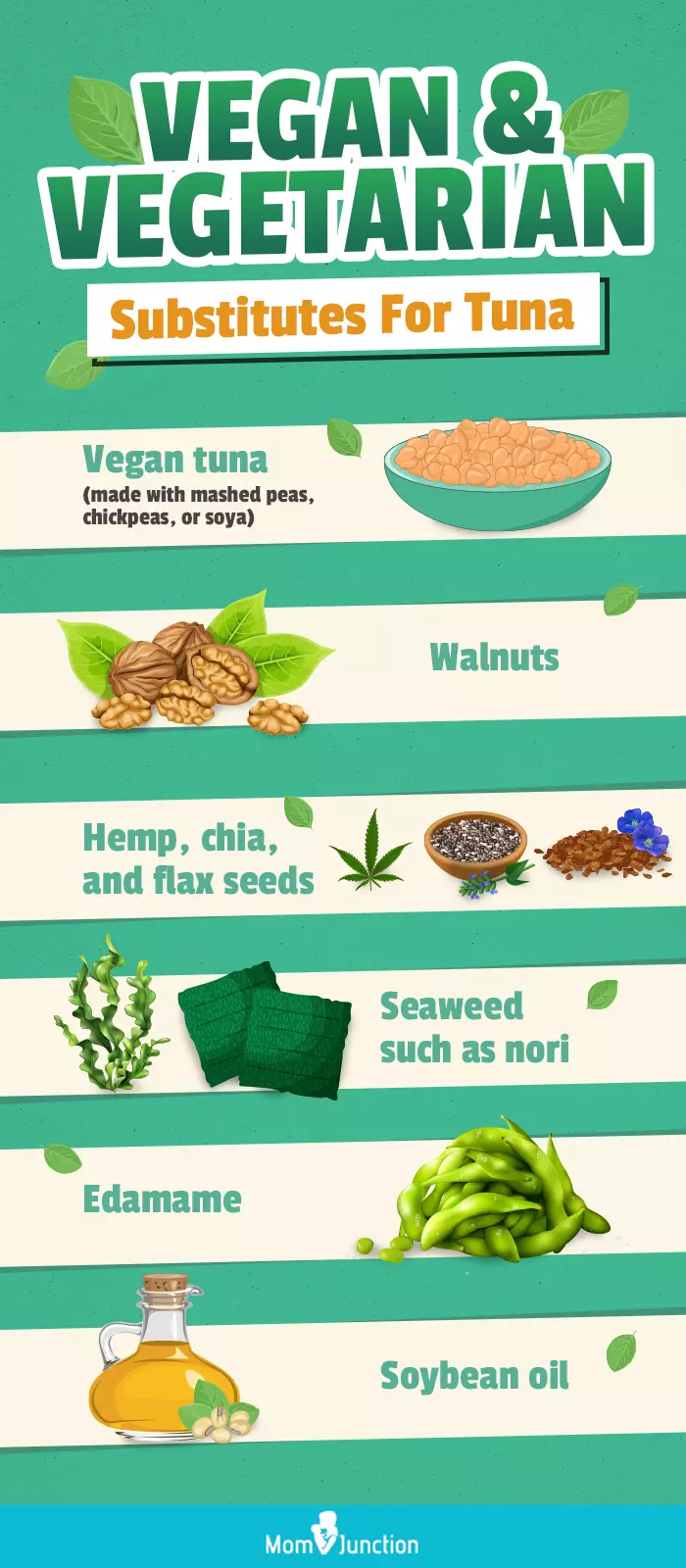
Illustration: Is It Safe To Eat Tuna When Pregnant?
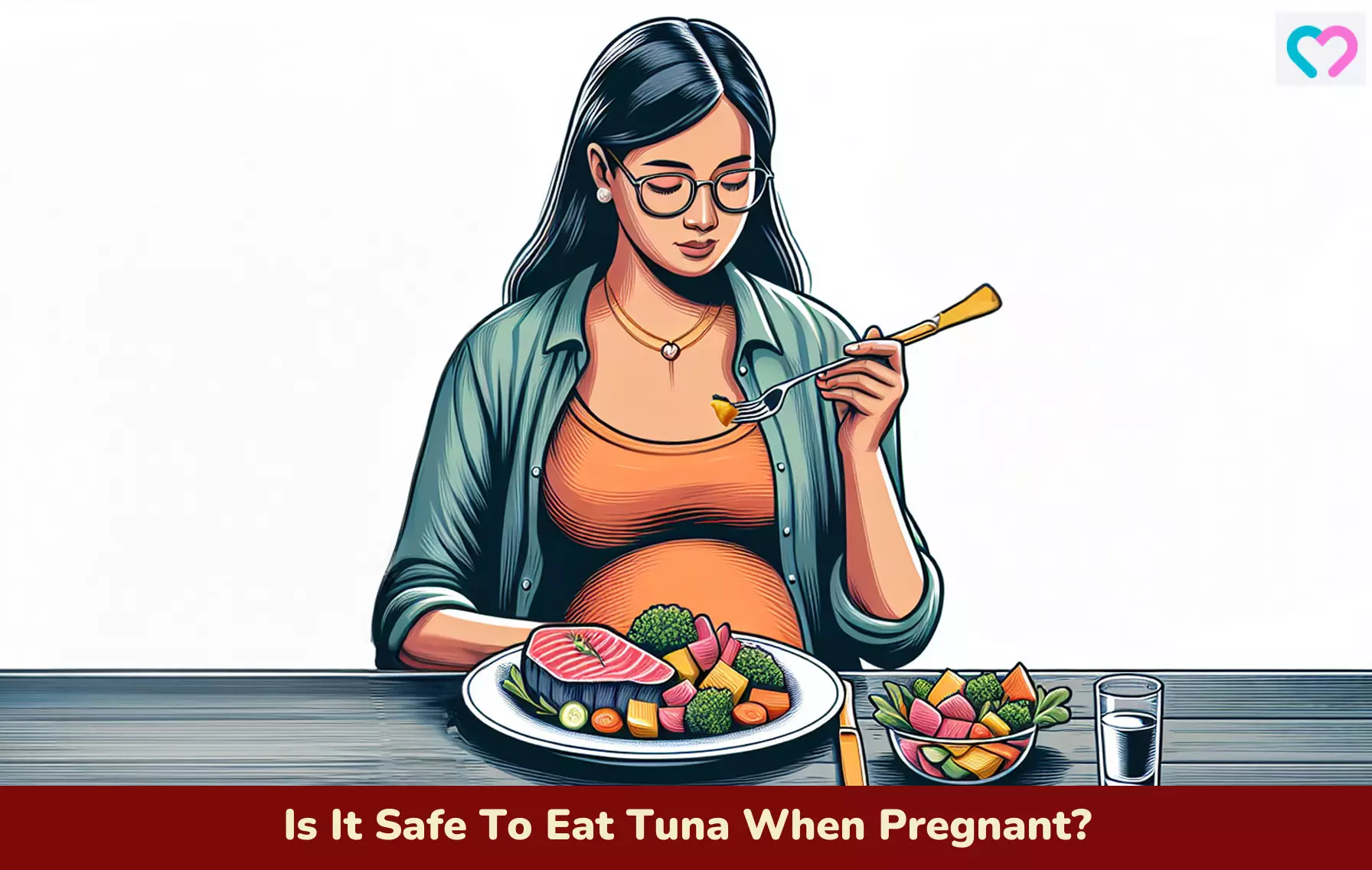
Image: Dall·E/MomJunction Design Team
References
- Arienne Bloomingdale et al.; (2010); A qualitative study of fish consumption during pregnancy.
https://www.ncbi.nlm.nih.gov/pmc/articles/PMC3131842/ - Doris T. Hicks; (2016); Seafood Safety and Quality: The Consumer’s Role.
https://www.ncbi.nlm.nih.gov/pmc/articles/PMC5302431/ - Jennifer McGuire et al.; (2016); The 2014 FDA assessment of commercial fish: practical considerations for improved dietary guidance.
https://www.ncbi.nlm.nih.gov/pmc/articles/PMC4942920/ - Should Pregnant Women Eat More Tuna?
https://faculty.uml.edu//jhojnacki/83.123/Documents/ShouldPregnantWomenEatMoreTuna.pdf - Sarah E Santiago et al.; (2013); Consumption habits of pregnant women and implications for developmental biology: a survey of predominantly Hispanic women in California.
https://www.ncbi.nlm.nih.gov/pmc/articles/PMC3704911/ - Mercury alert: Is canned tuna safe?
https://www.edf.org/health/mercury-alert-canned-tuna-safe - Advice about eating fish.
https://www.fda.gov/media/102331/download - Choline.
https://ods.od.nih.gov/factsheets/Choline-HealthProfessional/ - Foods to avoid or limit during pregnancy
https://www.marchofdimes.org/find-support/topics/pregnancy/foods-to-avoid-or-limit-during-pregnancy - People at Risk: Pregnant Women.
https://www.foodsafety.gov/people-at-risk/pregnant-women# - Oto Miedico et al.; (2020); Lead, cadmium and mercury in canned and unprocessed tuna: six-years monitoring survey, comparison with previous studies and recommended tolerable limits.
https://www.sciencedirect.com/science/article/pii/S0889157520313430
Community Experiences
Join the conversation and become a part of our nurturing community! Share your stories, experiences, and insights to connect with fellow parents.
Read full bio of Dr. Shikha Sharma
Read full bio of Swati Patwal
Read full bio of Rebecca Malachi
Read full bio of Aneesha Amonz





 Quick fact
Quick fact